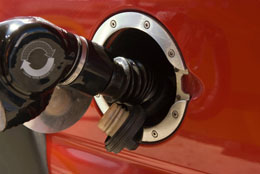 Natural gas is one of the most available fossil fuels. It has not been used as extensively as other fuels like gasoline and diesel. Factors like less viability, cost, and efficiency are the reasons for its secondary usage. Natural gas has to be compressed before it can be used as a fuel. Hence the acronym, ‘CNG’ (Compressed Natural Gas).
Natural gas is one of the most available fossil fuels. It has not been used as extensively as other fuels like gasoline and diesel. Factors like less viability, cost, and efficiency are the reasons for its secondary usage. Natural gas has to be compressed before it can be used as a fuel. Hence the acronym, ‘CNG’ (Compressed Natural Gas).
Pros
Pollution Control: This is one of the largest issues that is currently gripping the world. The effects of air pollution are of a great concern. If the level is not controlled now, we may never be able to revert the environmental damage that is being caused. Natural gas cars are far less polluting compared to vehicles that run on other fossil fuels.
Tax Incentives: Not just in America, but governments all around the world have declared tax incentives to consumers using such cars. Even though this is mainly to cap air pollution, the resulting low prices are a major benefit.
Abundance: Natural gas has not been used as extensively as gasoline. Hence, there are vast amounts of gas deposits that are still available. Thus, we can presume that we may not see a complete depletion of this gas, at least in our lifetime. There is relatively greater assurance about the availability of this gas.
Conversion Kit: If you cannot afford to purchase a new CNG car, there is a conversion kit available, which will allow you to hybridize your vehicle. After installation of this kit, you will be able to use a multi-fueled hybrid car, i.e., a gasoline and gas vehicle.
Cost of Maintenance: When you buy a car or a truck, you are obviously making a long-term investment. Cost of preventive maintenance of natural gas cars and trucks is very low with regards to a future perspective.
Compression Ratio: Engines running on CNG have a high compression ratio. This means that the fuel is almost completely burnt, leaving behind very few byproducts, which are beneficial to the environment.
Cons
Storage Tank : Any gas needs a container for storage or a storage tank. The design of CNG cars does not allow engineers to have a small storage tank, and a large one is not very conducive. Car safety is also a concern regarding gas storage.
Slow Performance: These vehicles are not famous for their high speeds. The horse power of similarly calibrated engines for gasoline and natural gas are not at all comparable. Less horse power basically results in a slower performance of such cars.
Less Performance: The mileage of the car in relation to the amount of gas used is quite low. One full tank of gasoline gives more output than one full tank of natural gas.
Availability of CNG Stations: There are very few CNG stations available, and hence your options become limited. If you run out of natural gas, chances are that the nearest station will be many miles away. In this scenario, you can either carry a big tank in your car, or tow your car to the CNG station.
Purchase Cost: CNG driven vehicles are not as popular as the gasoline driven ones. Thus, the manufactures are finding it difficult to lower the cost. High expense is one thing that has to be dealt with, while purchasing natural gas cars.
Low Volumetric Efficiency: This is the measure of the charge that is delivered into the cylinders. CNG contributes to a low efficiency in the performance of the car.
Even though there are many pros and cons of using natural gas, one should buy a vehicle that runs on CNG, as it is quite environment friendly. If our generation does not change its ways, people in the future will have to face the consequences of harming the planet.











RSS